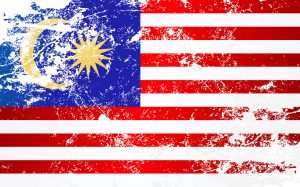Former workers at the Malaysian rubber glove maker Brightway Holdings have sued two foreign companies in a United States court, accusing them of “knowingly profiting” from the supplier’s alleged use of forced labor.
The lawsuit was filed on Tuesday by International Rights Advocates (IRA), a Washington-based legal advocacy group, on behalf of 13 Bangladeshi migrant workers. It claims that the multinational firms Kimberly-Clark Corp (ICC) and Ansell Ltd profited from forced labor at Brightway’s glove-making factories in Malaysia – and were aware that they were doing so.
“Both companies were repeatedly told of and publicly acknowledged the issues of forced labor and trafficking at Brightway, IRA said in a statement yesterday. “And both companies received low-priced latex gloves from Brightway Group made possible by the cheap labor of workers, including the Plaintiffs, who were victims of human trafficking and forced labor.”
For years, Malaysia, the world’s top manufacturer of disposable rubber gloves, has faced allegations of exploitation and other gross labor abuses in its rubber and palm oil sectors. As a result, a number of Malaysian firms have been hit with import bans or restrictions by U.S. customs officials over alleged labor abuses. Reuters reports that eight Malaysian companies, including six glove makers, have been banned by the U.S. in the last three years. Among them is Brightway.
In last year’s Trafficking in Persons (TIP) Report, the U.S. State Department dropped Malaysia to “Tier 3,” its lowest ranking, due to the government’s lack of action to tackle trafficking and labor abuses. Malaysia remained at the same level in this year’s report, which stated that although the government “took some steps to address trafficking,” it did not “adequately address or criminally pursue credible allegations from multiple sources alleging labor trafficking in the rubber manufacturing industry and palm oil sector.”
According to the IRA statement, the 13 workers “were trafficked into Malaysia and forced to work at a disposable glove manufacturing plant owned by Brightway Group. The suit claims that many of the plaintiffs paid more than $4,000 to recruiters on promises of a safe, well-paying job in Malaysia. They then had their passports confiscated and were forced to work long hours with few days off.
The suit alleges that the plaintiffs “were forced to work 12-hour shifts with few or no rest days. They were constantly subjected to physical and verbal abuse by their supervisors; they were beaten, yelled at, threatened, and prohibited from accessing medical care.”
“The Plaintiffs seek to represent a class of the thousands of other workers who, like them, were subjected to the same systematic trafficking and forced labor scheme that Brightway utilized to staff its facilities,” it added.
The lawsuit notes that after finding evidence of forced labor in its supply chains, the U.S. Customs and Border Protection (CBP) filed a Withhold Release Order against the Brightway Group in December 2021, which blocked its rubber gloves from being delivered to U.S. ports. IRA claims to have ample evidence that Ansell and KCC “were intimately aware of trafficked and forced labor in their supply chains, but refused to adequately address such violations until forced to do so by CBP’s WRO.”
International firms sourcing from Malaysia have long been aware of the exploitation and labor abuses that run through the country’s labor supply chains, and many have made public pledges to resolve the problem. In a statement to Reuters, KCC said the lawsuit was “without merit” and that it “stands against all forms of forced labor and we are committed to ensuring that all workers within our supply chain are treated with humanity and in accordance with our workplace and human rights standards.”
But the lawsuit makes a fairly straightforward case that these have done little to address the issue, quoting Terrence Collingsworth of IRA as saying that the companies had been unresponsive and that the workers “thus had no choice but to seek justice through the U.S. legal system.”
“Ansell and KCC have attempted to maintain their public reputation despite such usage of forced labor, each publishing statements regarding their dedication to addressing and ending modern slavery,” stated the lawsuit, as quoted in a story by BenarNews. “Words without action mean nothing, and absolutely do not resolve either company of legal or moral responsibility.”

































